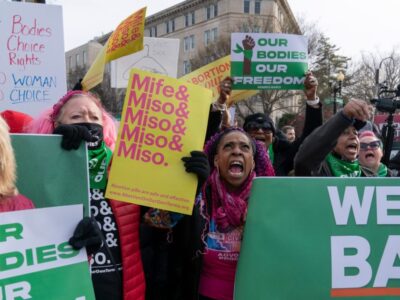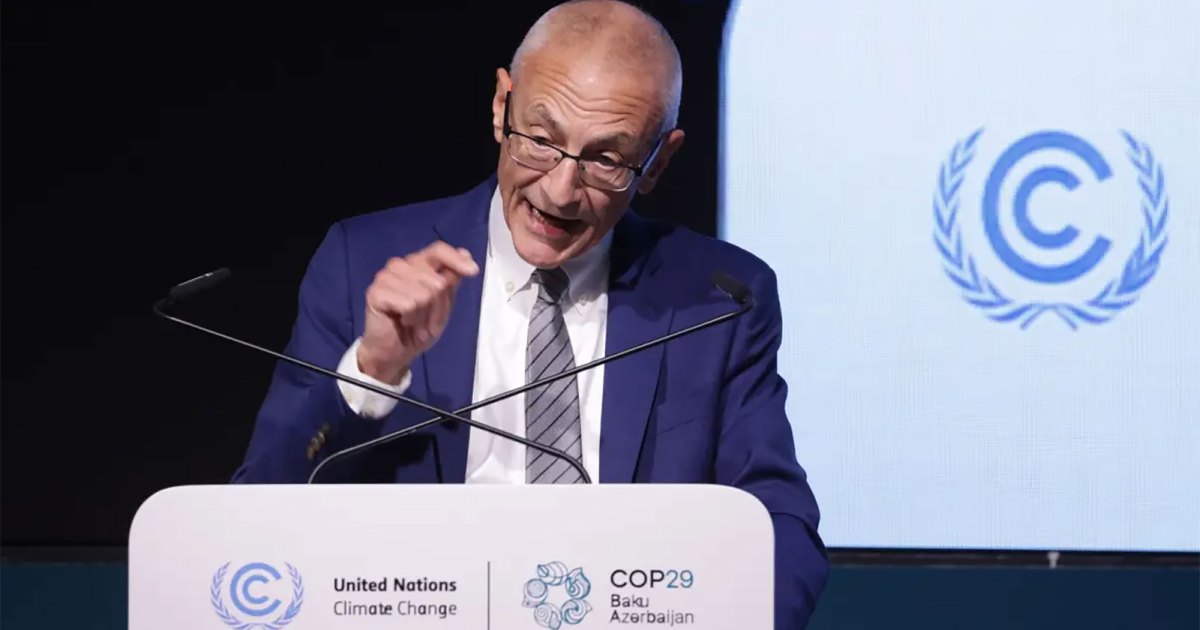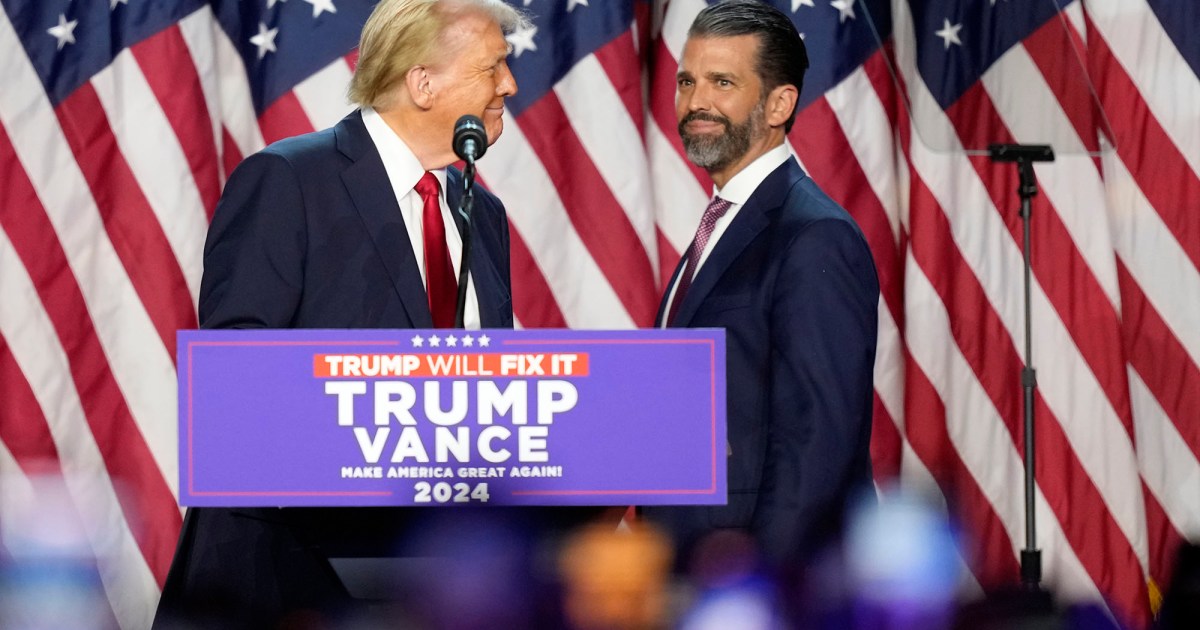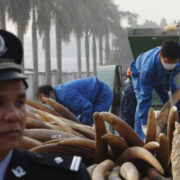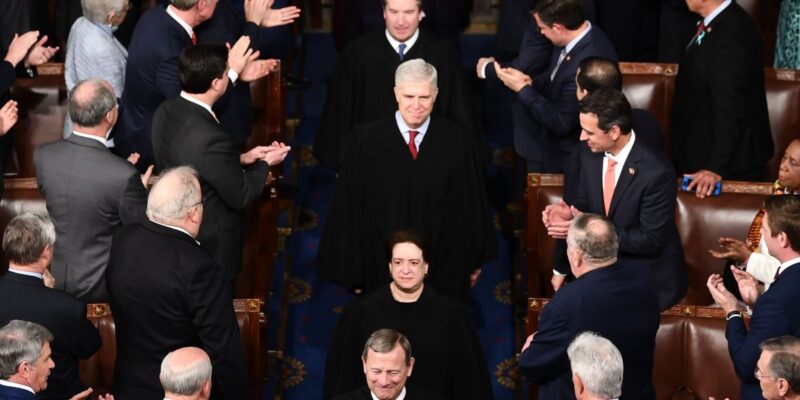
Monday marks the Supreme Court’s final week of oral arguments until October 2024, and the justices have saved some of their most consequential matters for last. On the court’s schedule are cases regarding former President Donald Trump’s immunity, abortion rights, and the criminalization of homelessness.
Here’s a preview of what will be on the docket.
On Monday, the court will grapple with whether or not local governments can impose criminal penalties on people experiencing homelessness. In the City of Grants Pass, Oregon v. Johnson, the justices will hear oral arguments from Grants Pass, which was sued for imposing cascading fines—beginning at $295—on people who lacked housing that could culminate in jail time if unpaid. The town’s unhoused people sued the city, arguing the penalty system violated the Eighth Amendment’s “cruel and unusual punishment” clause, as there are no public homeless shelters for them to turn to. Lawyers argue that the municipal code effectively makes it a crime to be homeless in the town. Advocates for unhoused people have called the criminalization of homelessness ineffective and inhumane. “People living outside don’t often have $295 to spend on anything, let alone tickets,” Jesse Rabinowitz from the National Homelessness Law Center told Mother Jones.
Then on Wednesday, the court will examine a 1986 law called the Emergency Medical Treatment and Labor Act, known by health providers as EMTALA. The law dictates that hospitals with emergency departments must treat people appearing with an emergency medical condition, or transfer them to a facility that can—regardless of the patient’s ability to pay their medical bills. Every hospital in the US that receives Medicare funding and has an emergency department must abide by the law.
Reproductive health advocates and the Biden Administration argue that EMTALA applies to abortion care in urgent situations in which a pregnant person’s health is threatened by continuing their pregnancy. For example, should a pregnant woman be on the brink of severe illness due to their pregnancy, advocates argue she should be able to immediately receive a medically necessary abortion—even in a state where abortion is banned.
After the court overturned Roe v. Wade in 2022, the Administration released a memo regarding EMTALA and abortion. “If a physician believes that a pregnant patient presenting at an emergency department is experiencing an emergency medical condition as defined by EMTALA, and that abortion is the stabilizing treatment necessary to resolve that condition, the physician must provide that treatment,” the July 2022 memo said. “When a state law prohibits abortion and does not include an exception for the life of the pregnant person—or draws the exception more narrowly than EMTALA’s emergency medical condition definition—that state law is preempted.”
In August 2022, the Biden Administration’s Justice Department sued Idaho, alleging its abortion ban violated EMTALA because it only makes abortion exceptions when the procedure is necessary to prevent the death of a pregnant person, not to prevent serious health risks they may face. That is the case—testing how far abortion laws can go, even in serious medical circumstances—that will now be decided by the Supreme Court.
While Trump will be in a New York City courtroom as the Stormy Daniels hush-money trial continues, on Thursday, the US Supreme Court will hear a case regarding whether the former president could attempt to overturn a national election and not face criminal charges.
At issue is the concept of “presidential immunity” and to what extent—if any—it should preclude Trump from being criminally prosecuted for election subversion conduct he allegedly committed while he was acting in his official capacity as president. While courts have previously contended that presidents are protected by immunity in civil matters related to their official conduct, this is the first time the court is weighing criminal immunity as it applies to official conduct.
Whatever the court decides will affect whether his trial in Washington, DC—centered on charges that he conspired to defraud the US and attempted to obstruct an official proceeding—can continue as it is now framed. (Even if the court rejects Trump’s most brazen assertions about broad criminal immunity, a narrower interpretation of presidential immunity could complicate and delay his case). The fate of his trial in Florida, where Trump stands accused of mishandling classified government documents, is also on hold and could be affected by the Supreme Court’s criminal immunity decision. Meanwhile, the election interference charges Trump faces in Georgia have been held up by a probe into the conduct of Georgia District Attorney Fani Willis.
Donald Trump infamously once said that he could “stand in the middle of Fifth Avenue and shoot somebody” and not face any political consequences. When the Supreme Court issues its rulings before the end of June, the essential argument of that statement may be put to the test.



